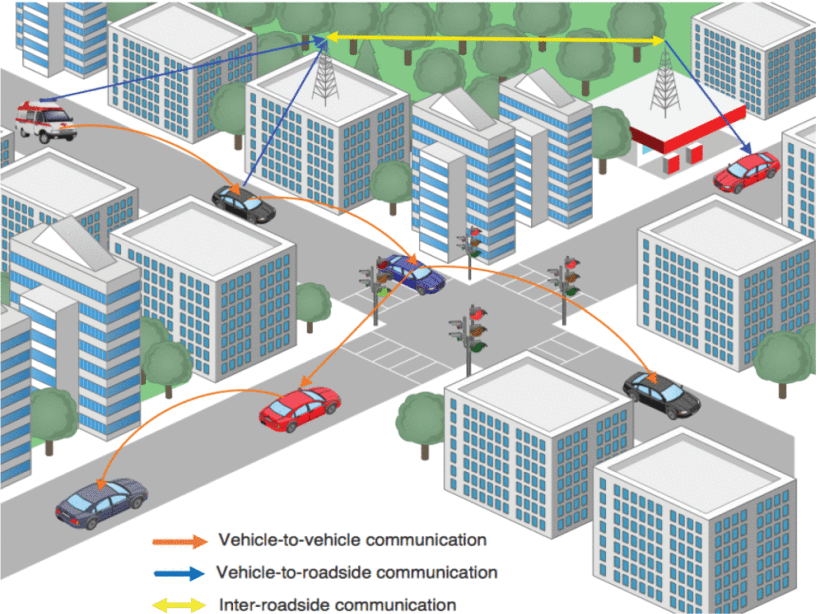A Probability-Based Multimetric Routing Protocol for Vehicular Ad Hoc Networks in Urban Scenarios
Vehicular Ad hoc Networks have received considerable attention in recent years and are considered as one of the most promising ad-hoc network technologies for intelligent transport systems. Vehicular Ad hoc Networks have special requirements and unique characteristics (e.g., special mobility patterns, short life links, rapid topology changes) which make the design of suitable routing protocols, a challenge. Consequently, an efficient routing protocol that fits with VANETs’ requirements and characteristics is a crucial task to obtain a good performance in terms of average percentage of packet losses and average end-to-end packet delay. To attain this goal, we propose a novel probabilistic multimetric routing protocol (ProMRP) that is specially designed for VANETs. ProMRP estimates the probability for each neighbor of the node currently carrying the packet, to successfully deliver a packet to destination. This probability is computed based on four designed metrics: distance to destination, node’s position, available bandwidth and nodes’ density. Furthermore, an improved version of ProMRP called EProMRP is also proposed. EProMRP includes an algorithm that accurately estimates the current position of nodes in the moment of sending the packet instead of using the last updated position obtained from the previous beacon message. Simulations are carried out in a realistic urban scenario using OMNeT++/VEINS/SUMO, including real maps from the OpenStreetMaps platform. Simulation results show a better performance of ProMRP and EProMRP compared to recent similar proposals found in the literature in terms of packet losses and end-to-end packet delay, for different vehicles’ densities.

If you want to know more about this topic, see the original article.






